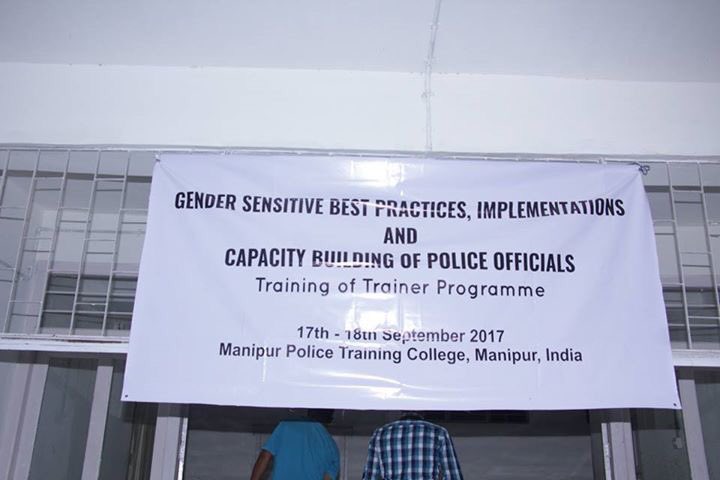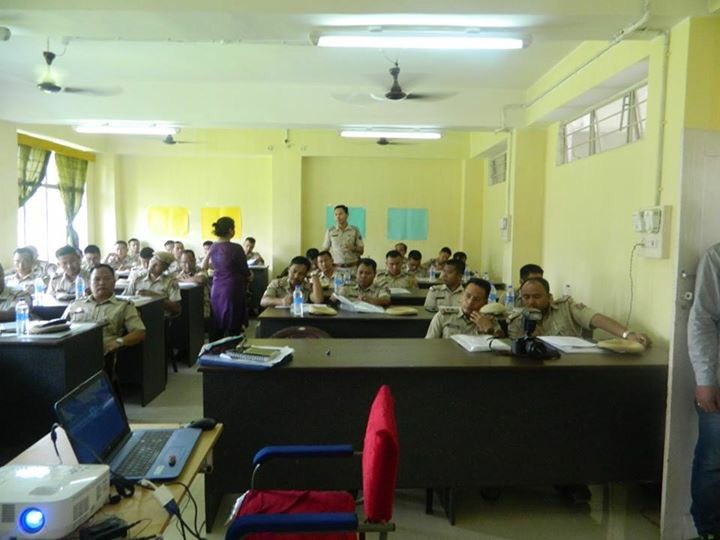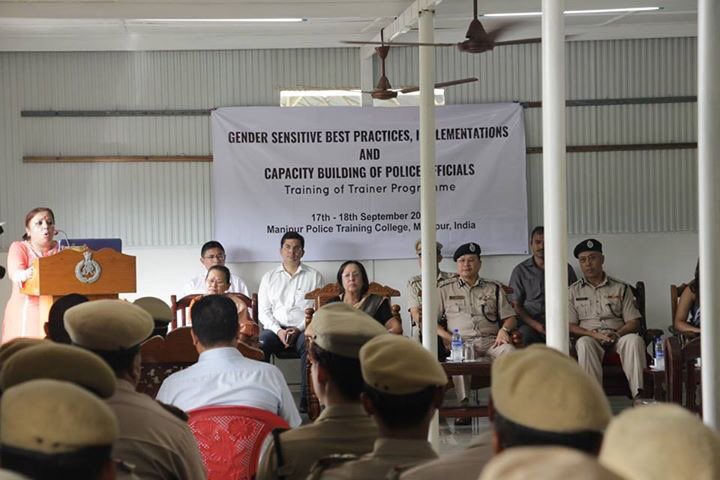Hanns Seidel Foundation (HSF) in the 6th year of its association with Centre for Social Research (CSR) has partnered on projects related to Water Conservation and Gender Mainstreaming projects, Safe Cities Project and Gender Sensitization of multiple stakeholders. As part of the Safe Cities Project last year, we undertook trainings of the Police Officials in the states of Karnataka and Jammu Kashmir. This year we are revisiting Jammu and also covering Manipur and Puducherry.


In view of the aforementioned plan, the Centre for Social Research with Manipur Police Training Academy undertook Two Day Police Training on 178th and 18th September 2017 at the Police Training School. About 40 police officials participated in the training which was inaugurated (on the second day) by Her Excellency the Honorable Governor Smt. Najma Heptullah and was attended by the Director General of Police Mr. Khaute and the Inspector General of Training and the Director of Manipur Police Training Academy.
The Two Day Training was a dynamic exchange between the resource people and the participants on various law and order situation pertaining to gender based crimes. Human Rights, domestic violence, Gender constructs, Anti-Human Trafficking, Criminal Justice System and many other subjects were discussed at length by esteemed resource people who are state level subject experts. 

The training sought to understand the problems faced or pre-empted by the police officials (communication and outreach given the legal complexities) and optimization of limited legal resources to sensitively handle survivors and their cases.
From the perspective of survivors, the training undertook dialogue on non-reporting of crimes by the survivor or the survivor withdrawing legal statements in registered cases / crimes. Prima facie, there might be a possibility that the survivor and the victim find themselves lacking alternatives for better ways to acquire justice. This possibility not only has to be investigated but also rectified.


The police training aimed to provide a theoretical sheen of gender constructs and a sociological approach to understanding the same. In order to do so, CSR and HSF felt it was imperative to undertake a Training Needs Assessment (TNA) that would fine tune the trainings as per individual states and their requirement.




